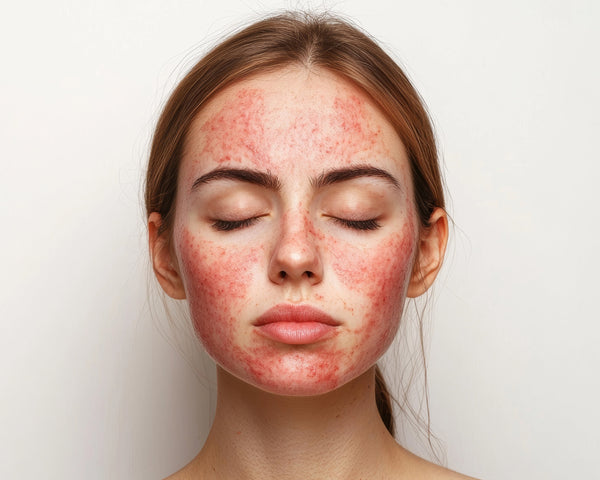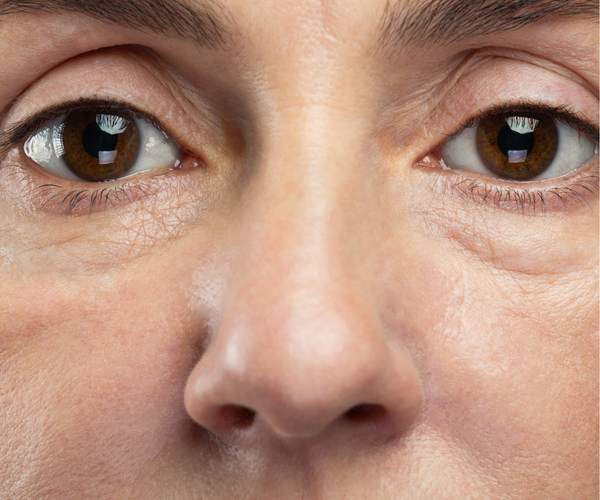Blackhead and Whitehead Popping: Why We Shouldn't Pop Them

The Allure and Danger of Popping Pimples
We've all been there. A pesky blackhead or stubborn whitehead appears, and the immediate urge to squeeze it is almost irresistible. But before you give in to temptation, let's explore why popping pimples, whether blackheads or whiteheads, is almost always a bad idea for your skincare routine and overall healthy skin.
While the immediate gratification of a popped pimple might seem appealing, the long-term consequences can significantly impact your quest for youthful skin and glowing skin. This article will delve into the reasons why you should resist the urge and maintain a consistent skin care routine for truly clear skin.
Understanding Blackheads and Whiteheads
Blackheads and whiteheads are both types of acne lesions caused by clogged pores. The difference lies in their exposure to air:
- Blackheads (open comedones): These appear as dark spots due to the oxidation of sebum (oil) and dead skin cells that are exposed to the air within the pore.
- Whiteheads (closed comedones): These are small, flesh-colored bumps resulting from pores clogged with sebum and dead skin cells that are not exposed to air.
Both blackheads and whiteheads are a common occurrence, varying in frequency and severity depending on individual skin type. People with oily or combination skin are more prone to these blemishes.
The Risks of Popping Pimples
Popping pimples, whether blackheads or whiteheads, introduces several risks:
- Infection: Your hands carry bacteria, and squeezing pimples introduces these bacteria into the pore, potentially leading to infection, inflammation, and scarring. Infected pimples can be painful and take much longer to heal.
- Scarring: Aggressive squeezing can damage the surrounding skin tissue, increasing the likelihood of developing permanent acne scars. These scars can be difficult to treat and affect the overall appearance of your clear skin.
- Spread of Bacteria: Squeezing can force the contents of the pimple deeper into the skin, spreading the infection to nearby pores and potentially causing more breakouts.
- Hyperpigmentation: Inflammation caused by popping can result in post-inflammatory hyperpigmentation (PIH), leading to dark spots that can last for months or even years.
- Delayed Healing: Popping a pimple disrupts the natural healing process, prolonging the time it takes for the blemish to disappear. Patience and a proper skincare approach are key for faster healing.
Alternatives to Popping
Instead of resorting to popping, consider these gentler and more effective alternatives:
- Over-the-counter acne treatments: Benzoyl peroxide and salicylic acid are effective ingredients that can help unclog pores and reduce inflammation.
- Prescription medications: A dermatologist can prescribe stronger medications like retinoids or antibiotics for more severe acne.
- Professional extractions: A dermatologist or esthetician can safely extract blackheads and whiteheads using specialized tools, minimizing the risk of scarring and infection.
- Consistent skincare routine: A daily skincare routine that includes gentle cleansing, exfoliation, and moisturizing can prevent future breakouts.
Maintaining Healthy Skin
Maintaining healthy skin requires a holistic approach. This includes:
- Gentle cleansing: Wash your face twice a day with a gentle cleanser suitable for your skin type.
- Exfoliation: Regular exfoliation helps remove dead skin cells and prevents clogged pores. Avoid harsh scrubs; opt for chemical exfoliants like AHAs and BHAs.
- Moisturization: Keeping your skin hydrated helps maintain its barrier function and prevents dryness, which can worsen acne.
- Sun protection: Always apply sunscreen with an SPF of 30 or higher to protect your skin from sun damage, which can exacerbate acne and scarring.
- Healthy diet: A balanced diet rich in fruits, vegetables, and antioxidants can support healthy skin.
Remember, achieving glowing skin and youthful skin requires patience and consistency. Avoid the temptation to pop your pimples and focus on a proactive skincare routine to maintain clear skin. Consult a dermatologist if you have severe or persistent acne.




